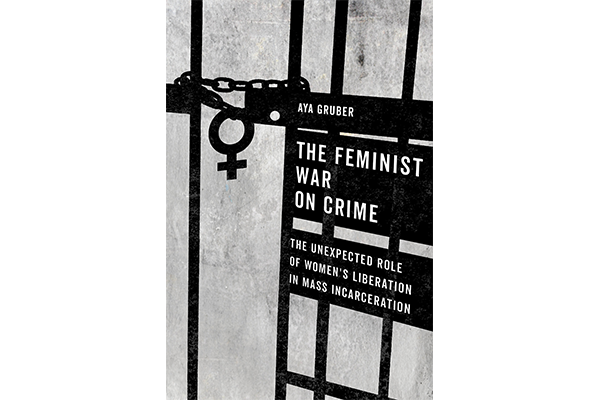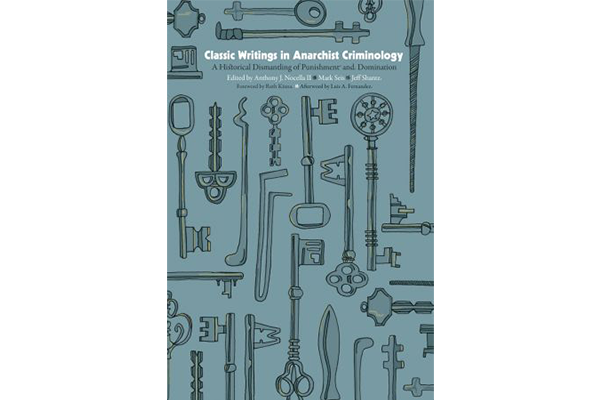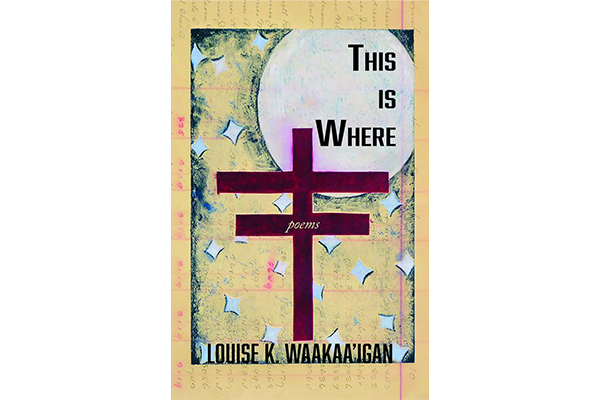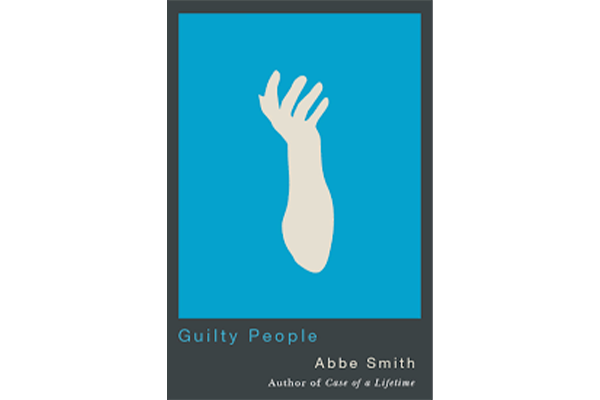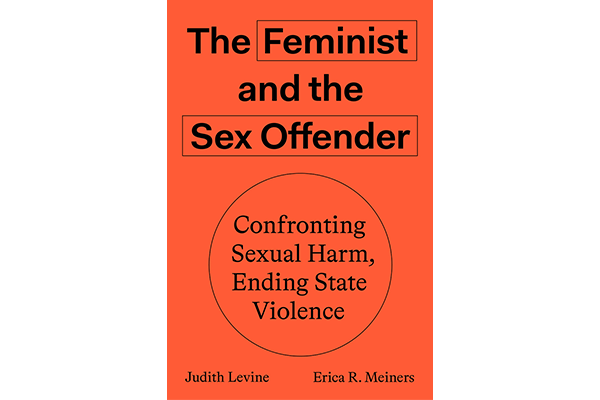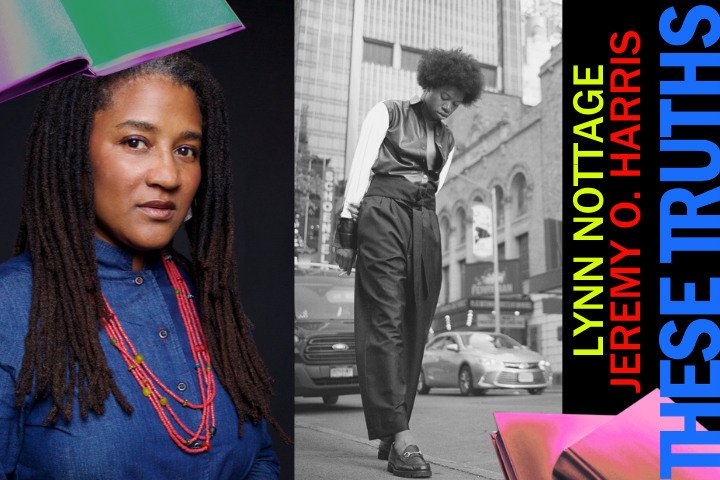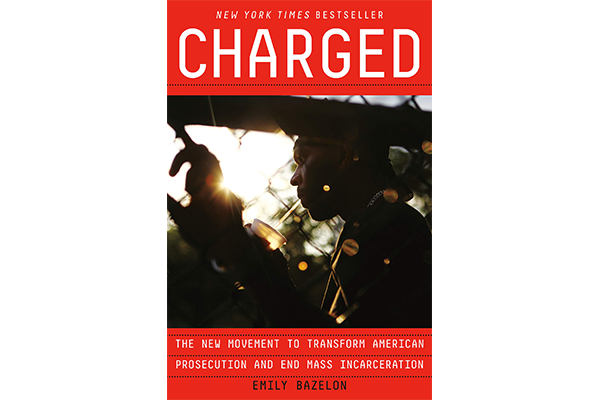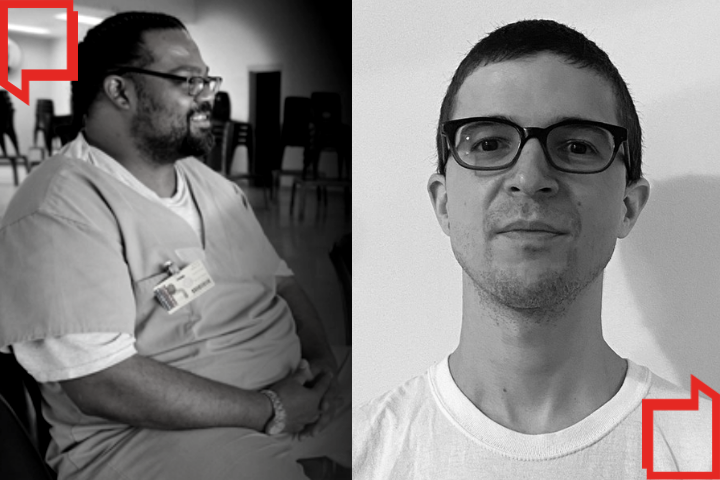
These dual essays were written by Derek Trumbo and Agustín Lopez, 2020 honorees for the PEN America/L’Engle-Rahman Prize for Mentorship.
Derek Trumbo
When PEN America announced the new L’Engle-Rahman Prize for Mentorship and invited me to nominate one of my many mentors, I thought of Agustín.
Over the years, many had asked me to describe the perks of participating in PEN America’s annual Prison Writing Program Contest, each man wanting to know why they should submit their most private thoughts, intimate longings for a better life, daily scribblings in the journal of their souls, dramas like morality plays that spring to life in their minds and ebb out of the tip of their pens to make sense on the page—even if nothing made sense in their lives or surroundings. Everything in prison is based on incentive, reward-based behavioral modification programs that divided the savages from those who still had hope of being productive citizens. Thus, the only time anyone volunteers for anything is when there’s a very strong chance of something in return: What do I get out of it? Nearly everyone would gawk, balk, or sneer when I gave them the answer: A mentor. Which invariably led to the next question: What is a mentor? Who needs a mentor? And what does a mentor do? It would be this question or all of the questions spilled into one that would either make or break the conversation entirely, depending on my response.
How does one reach someone who has never been reached before? Better yet, how does one guide someone who has known nothing but disappointment and been led astray?
Writing takes hours of work, weeks of dedication, and years of study just to be able to effectively translate one’s thoughts into a cohesive form on the page and complete thoughts that describe the overall sense and sound, mood, rhythm, and balance of the life one finds themselves seeking to express. It’s even harder when one has spent their entire life being told they’ll never amount to shit, have nothing of any import to say, and must shut the (provide your own expletive) up or else find their teeth—and themselves—on the floor. To have a voice, one must first believe they can give voice to something, and in prison, the easiest voice to listen to is the voice of doubt. That screaming tirade inside one’s mind that rants violently about how big a waste of time documenting one’s feelings will be. How the hours, weeks, years would be much better spent hustling the quick buck, seeking escape through favorite pastimes or pointing out everyone else’s flaws to deflect away from one’s own.
After all, who needs to be told what they’re doing is wrong anyway? That’s what a mentor does, right? A mentor had to be just another authority figure who got their kicks from lording their knowledge and rules over people they could never truly relate to, right? The men who questioned my involvement each year with PEN America often pointed out my lack of fly kicks, fresh gear, and respect among my peers on the yard as their motivation to not participate. After all, the label “smart guy” didn’t carry much weight when the so-called smart guy found himself trapped in the same cage as the self-proclaimed dummies. The “game” was to be sold and not told, and most people saw no reason to give the game away for free. So to hell with some contest, and some mentor. What could some contest do for anyone anyway?
Then came Agustín. The would-be film school grad turned English and creative writing class-taker came along at a time in my life when I’d teetered perilously on the edge of giving up on writing completely. Because of the constant bombardment of negativity surrounding my desire to be productive, have purpose, and seek to make sense of the best, I dwelled within. I’d drawn attention from the naysayers who had decided my use of the wing’s sole two tables each day to sit and write had begun to infringe on their own escapisms. Coupled with my charge (convicted sex offender) and the stigma attached—social pariah—and untouchable liability to any would-be editor, my writing had become as invisible as I’d begun to feel. Which led me to Eldridge Cleaver’s Soul on Ice and the following passage: “My pride as a man dissolved and my whole fragile moral structure seemed to collapse, completely shattered. That is why I started to write. To save myself.”
Completely devoid of my once naive faith in being able to use my voice on the page to reflect the condition of my heart, and wholly in doubt of my craft, I used Agustín’s letters to fight the darkness. I wasn’t looking for an “Attaboy!” I didn’t need to be placated. I appreciated Agustín’s ability to speak his mind, how he questioned my aims and motivations, the way he explained why his critiques and suggestions were pertinent. Agustín effectively laid out his stance on today’s writers—free or caged—having the obligation to present their work in a professional manner. He taught me to be and to hold myself accountable for my own success. He made me understand that in order to count myself among the next Eudora Welty, John Cheever, or Ralph Ellisons, I’d need to first familiarize myself with their work, understand why they flourished, and follow their example. Agustín led me to believe that my words mattered. He made me seek out new ways to express myself. He made me take pride in the way that I presented my words. In order to be heard, I’d need to do more than just open the proverbial wound and spill my anguish onto the page. Everyone could do that, to the point of oversaturation.
So I read, and studied, and worked. To hell with my reputation.
I displayed the following quote on my locker, and affirmed it daily:
“When we treat man as he is, we make him worse than he is; when we treat him as if he already were what he could potentially be, we make what he should be.” —Wolfgang Goethe
The quote, like Agustín’s letters, became my declaration of truth. My challenge to the status quo. My manifesto against anyone who dared to define themselves by their own situation or seemingly insurmountable circumstance. And with each day, and each letter, I’d use the quote, and Agustín’s words like my own personal Sherpa to help me navigate and make headway against the Hemingway-esque “Hills like White Elephants” of prison life that sought to trample me beneath their uncaring feet. But, unlike Hemingway’s characters sitting in a barren railroad station in Spain just waiting for the train to come along to take the girl to Madrid for an abortion, I wanted more than just to sit and wait. I desired to rid myself of not an unborn child, but to give birth to a new me. A new reality. I’d rid myself of my bondage, shackles, and fetters. Through my writings, I’d seek liberty.
When a couple out of New York took notice of a 10-minute play I wrote, Fall Leaves, and asked me to develop it into a screenplay, I felt overwhelmed. Though I’d studied screenwriting, I never actually went to school for it. Or ever imagined I’d be asked to produce one. I was a high school dropout who had one day decided to pick up a pen. It was a fluke that PEN America even recognized me in a sea of words, but Agustín merely scoffed when I balked, and nudged when I dragged my feet. He told me to seek a bit of myself in the work of others. Had the couple out of New York not seen themselves in my play about a man who’d found nothing but doubt in his newfound freedom? I was challenged to abandon the “normal” social structure of a convicted sex offender’s reentry into the same society that had cast him out, and to tell the truth, to reveal both the light and the darkness the protagonist would face. I was tasked to dream, perchance to dream. To have no fear in revealing my inner turmoil concerning the life I will invariably one day face, through the slant of my own creation. Agustín gave me a copy of Martin McDonagh’s Three Billboards Outside Ebbing, Missouri and the recommendation to “give the people what they fucking wanted.” He told me to study screenplay like it was my Bible.
Sometime afterwards, our correspondence ceased. Maybe it was something said on my part, a misinterpreted turn of phrase or such. Everyone knows words have more than one meaning. Or perhaps, like an eagle overseeing their charge, I was let go to try my own wings out. To soar without the aid of another. Either way, were it not for Agustín—and his ability to see the potential in me that I’d allowed to be overshadowed by my present circumstances—I’d still be staring at blank pages. Or worse.
Thank you, Agustín, for allowing me the same help you had given your brother when he was in the same place I found myself in. Words heal. Words save. You reached me.
Agustín Lopez
I knew Derek was a great writer before I ever read his fiction. When we first exchanged letters, I noticed that his writing took the reader on a journey through many places, ideas, references, and so on—all just to tell me how his day went! Derek’s command of language allows him to employ a complex vocabulary to describe ambitious ideas, yet he does it effortlessly. The accumulation of these talents invites the reader to jump into Derek’s world—though “world” seems like such a narrow description; Derek’s universe is more accurate. There are so many ideas Derek wants to explore, and he always finds an effective way to express them, which I believe is the mark of a true artist.
These literary talents translate to storytelling quite easily. Derek is a master of many forms, from fiction to theater to film, from realism to crime to sci-fi. The man can do it all. What strikes me the most about Derek’s storytelling are the characters he chooses to follow. Many of them have fatal flaws of which they are all too aware, which leads to either moments of lashing out in anger or suffering quietly. No matter what type of character it is, Derek makes sure to depict them with dignity because, in my opinion, he truly loves them all. Everyone deserves love in some shape or form in Derek’s stories.
As a writer, Derek gives so much to the reader in his letters and stories. This inspires me to give just as much in return. When editing his stories, I make sure to provide extensive line edits in addition to typing up pages of thoughts, feelings, and questions for Derek—who is a great mentee, by the way. He has an open mind, which allows him to see the many different paths a story can take. He understands that a piece of fiction is a living, breathing thing that can evolve over time.
Derek’s talents are obvious to anyone who reads his work. It’s why he won first place for the PEN America Prison Writing Award in the Drama category. (P.S. Derek, I am so proud of you!) That, truly, is my biggest honor as a mentor. I want to thank him, PEN America, and especially Robbie and Caits. The PEN America Prison Writing Program is so rewarding for everyone involved and serves as a reminder that every voice matters.

